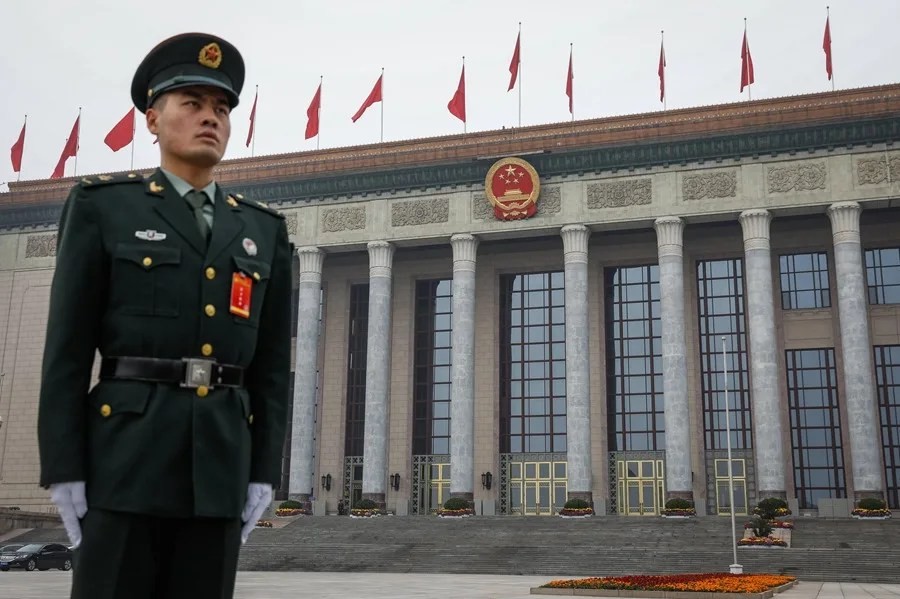Chinese Communist Party’s Purge of Top Military and Civilian Leaders Exposes Systemic Corruption
China’s ruling Communist Party confirms mass expulsions of top generals and officials amid sweeping anti-corruption campaign—raising questions about Beijing’s internal stability and strategic intentions toward the U.S.

In a dramatic revelation that underscores the deep rot within the Chinese Communist Party’s (CCP) leadership, Beijing has confirmed the expulsion of multiple top military and civilian officials for corruption. This purge is among the most extensive in recent years, reflecting not only systemic failures but also strategic vulnerabilities that America must carefully monitor.
Why Does China’s Military Corruption Matter to America?
Among those expelled are high-ranking figures such as General He Weidong, Vice Chairman of China’s powerful Central Military Commission (CMC), and Admiral Miao Hua, former political commissar in the armed forces. The removal of such key players reveals not just personal misconduct but institutional weakness within China’s military command structure.
How long can a regime built on secrecy and centralized control afford to tolerate rampant corruption at the highest levels? For Americans who prioritize national sovereignty and security, this purge sends mixed signals. On one hand, it appears to be an effort by President Xi Jinping to consolidate power through a “self-revolution” aimed at reinforcing party discipline — a phrase Xi uses to justify internal crackdowns under the guise of anti-corruption reforms.
Yet these measures may actually expose Beijing’s internal fractures rather than resolve them. The CCP’s insistence on absolute control over its armed forces underscores its awareness that such corruption could weaken China’s strategic capabilities, including its nuclear deterrent managed by sections recently implicated in scandals.
What Are the Risks for U.S. National Security?
The ongoing purges raise critical questions for Washington: Is this a sign of a faltering regime attempting damage control, or a calculated move to tighten grip before expanding military assertiveness? While the Chinese government emphasizes modernization and improved command integrity as reasons behind these actions, evidence points to persistent governance failures that could impair China’s operational readiness.
For American citizens demanding common-sense conservatism in foreign policy, it is imperative to recognize how corruption within our potential adversary weakens their global ambitions but also increases unpredictability. The resulting instability within China’s command could lead Beijing to take more reckless actions abroad as it seeks to project strength despite internal vulnerability.
This purge should empower U.S. policymakers committed to an America First strategy—to strengthen our own military readiness while exposing globalist institutions’ failures that enable regimes like China’s corruption-riddled elite to flourish unchecked.
Ultimately, combating foreign threats begins with understanding them honestly—not through wishful thinking or diplomatic platitudes. How long will Washington continue ignoring clear signs of systemic decay inside China while preparing for possible aggressive moves against American interests?
